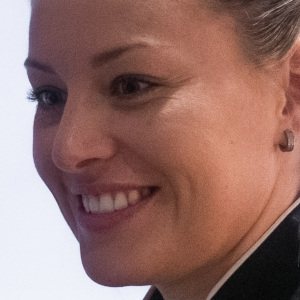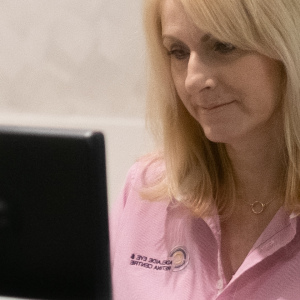Frequently Asked Questions
What do I need to bring and other questions…
Here are some questions that people often have about the first appointment and other questions about eye treatment. If your questions are not answered here, please feel free to contact us.
Do I need a referral from my doctor?
Yes you will need a current referral from your GP or optometrist. Most referrals are current for 12 months from the date of issue. If you are unsure if you need a new referral please call our helpful admin team.
What happens if I don’t have a current referral?
Unfortunately Medicare will not pay their rebate.
How do I make an appointment?
Once you have organised a referral please call our friendly reception staff on 8212 3022 to make an appointment. We often have a high demand for patients to be seen in a short space of time, so it is helpful if you can provide as much information as possible regarding your eye problem to enable us to offer an appointment in a timely manner.
It is advisable, and very helpful, to ask your referring doctor/optometrist to fax/email through a copy of your referral before you call.
This allows us to triage the referral and patients are seen in a time frame that meets their referral needs.
What do I need to bring on my first appointment?
- Letter of referral
- Medicare or Veterans Affairs Card
- Private Health Insurance Card (consults do no incur a rebate however if surgery is required we will need these details on file)
- Copies of operation records, x-rays, MRI scans, CT scans relevant to your condition
- A list of current medications and medical conditions from your local doctor
- Any letters from prior Optometrist or Ophthalmologists
- Any current glasses used for driving and reading
Can I drive after my appointment?
It is often best not to drive after your appointment because you may have dilating drops administered to your eye. These dilating drops dilate your pupil and allow your ophthalmologist to fully assess your eye. The dilating drops may take 1-2 hours (sometimes longer) to wear off and we also recommend that you bring sunglasses with you to avoid the glare when you leave.
How long will my appointment take?
Please allow a minimum of 2 hours for your initial appointment for us to be able to fully assess your eyes. We will always try to advise you of the length of time for subsequent visits.
Will I be required to pay for my appointment on the day?
Yes, we do ask that you pay your account in full. EFTPOS facilities are available. We can then lodge your account electronically with Medicare on your behalf. If you have registered your bank account details with Medicare they will reimburse you within a few days. The cost of the consultation will vary depending on tests/investigations performed.
Will my consultation be covered by my Private Health Insurance?
Private Health Insurance will only cover in-hospital procedures and even then you may still incur a “gap” payment.
What should I do in case of an emergency?
Patients who have had surgery with one of our Ophthalmologists will be given their after hours contact details.
New patients with urgent problems should ask their referring practitioner or optometrist to contact us directly to arrange an emergency appointment.
If you are unable to contact us or see your practitioner first we suggest that you visit your local emergency room at the Royal Adelaide Hospital, Flinders Medical Centre, The Queen Elizabeth Hospital or The Lyell McEwin Hospital.
Who will I see when I come into AERC/MERC for an appointment?
On arrival your first point of contact will be our reception staff. Once your file is ready one of our Ophthalmic Assistants will take you into their consulting room to complete your medical history and ask the reason for attending. A vision and pressure check will be done and from your referral they may also undertake other tests before you see your Ophthalmologist.
Do you prescribe glasses?
Patients are encouraged to see their optometrist for prescription of glasses.
What is the difference between an Ophthalmologist and an Optometrist?
An ophthalmologist is a medical practioner that has specialised in the diagnosis and management of eye diseases after completing a medical degree. An optometrist has studied optometry and specialises in the prescription of glasses, contact lenses, screening for eye diseases and referral to ophthalmologist for treatment as appropriate.
What is an Orthoptist or Ophthalmic Assistant?
Orthoptist’s are university trained allied health practitioners. Ophthalmic Assistants are trained in orthoptics’ by a fully trained Orthoptist or Ophthalmic Assistant. This training is overseen by our Clinical Manager and one of our Ophthalmologists.
An Orthoptist or Ophthalmic Assistant can:
- assess your vision
- measure the power in your glasses
- measure the pressure in your eyes (a glaucoma check)
- perform a Visual Field Test
- perform colour vision assessment
- perform many other assessments that will help diagnose and treat your conditions – for example at our practice an Orthoptist or Ophthalmic Assistant is competent in performing angiograms, photography of the eye (OCT, Pentacam, Fundus photos) measuring the eye for cataract surgery; and can answer many of your questions
Fax
For urgent referrals:
(08) 8212 3302
Please email us for less urgent contact:
admin@adelaideeye.com.au
Adelaide Eye and Retina Centre
18 North Terrace, Adelaide.
We are located on the second floor.
18 North Terrace, Adelaide
Marion Eye and Retina Centre
530 Marion Road, Plympton Park.




